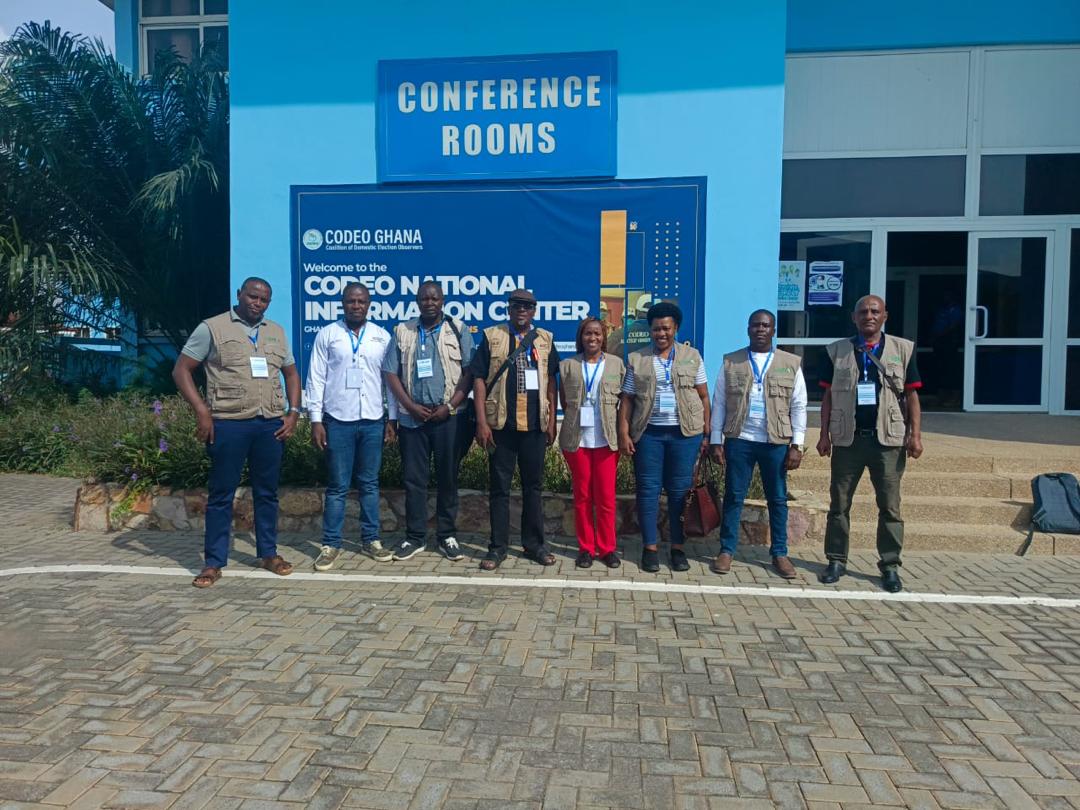
Lessons from Ghana’s 2024 Elections: Insights for Uganda’s Future Electoral Process.
The Uganda National NGO Forum was pleased to be part of the E-Horn Election Learning and Exchange mission for the Ghana Elections, where our SCENE Deputy Chief of Party, Chris Nkwatsibwe, represented us. The Ghana general elections, held on December 7, 2024, were a critical moment in the country’s democratic journey, as citizens voted to elect the President and Members of Parliament. The official results confirmed the victory of opposition candidate, former President John Mahama, who won with 56.6% of the vote, defeating Vice-President Mahamudu Bawumia, who secured 41.6%. This marked the biggest margin of victory in Ghana’s elections in 24 years.
As part of the mission, Chris Nkwatsibwe observed the election process and gathered valuable insights to inform Uganda’s preparations for its 2026 general elections. Hosted by the Coalition of Domestic Election Observers (CODEO), the mission brought together election experts, civil society organizations, and stakeholders from various countries to share lessons on improving electoral processes and increasing civic participation.
One key lesson from the #GhanaPolls2024 was the critical importance of inclusivity in the election system. Ghana’s adoption of a simplified tactile voting device for visually impaired voters stood out as a significant step towards ensuring that all citizens could participate fully in the democratic process. This affordable and practical solution enabled visually impaired voters to cast their ballots independently, ensuring their inclusion in the election process.
Voter turnout, which was reported at 60.9%, is a critical aspect of any election, as it directly reflects the level of civic engagement and the public’s trust in the electoral system. High voter turnout is essential for ensuring that the election results are representative of the entire population. Low turnout, on the other hand, can lead to questions about the legitimacy of the outcome and may indicate disenfranchisement or a lack of confidence in the electoral process. In Ghana, the 60.9% turnout demonstrated the effectiveness of inclusive measures in encouraging broad voter engagement and reflected a significant level of civic participation.
As Uganda prepares for its 2026 general elections, the implementation of accessible voting technologies like the tactile voting device could play a key role in ensuring that all citizens, including those with disabilities, have an equal opportunity to participate. Furthermore, the mission highlighted the importance of civic education and awareness in encouraging citizens to take an active role in elections.
We wish to extend our congratulations to the people of Ghana for a peaceful and successful election process. We are confident that the lessons learned through the E-Horn mission will continue to strengthen election systems across the continent. With the knowledge gained from this experience, we look forward to contributing to the improvement of Uganda’s electoral process in the coming months.



